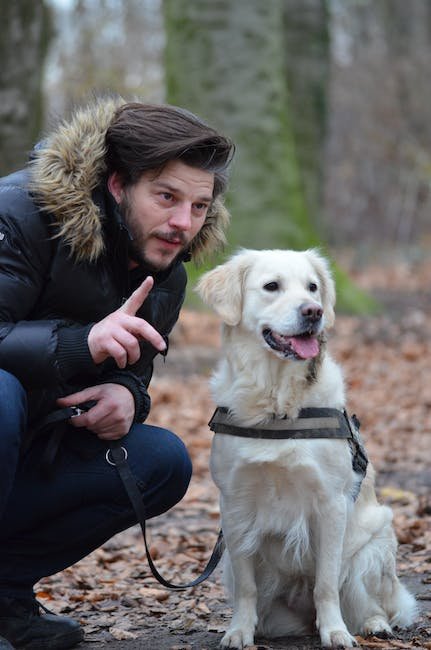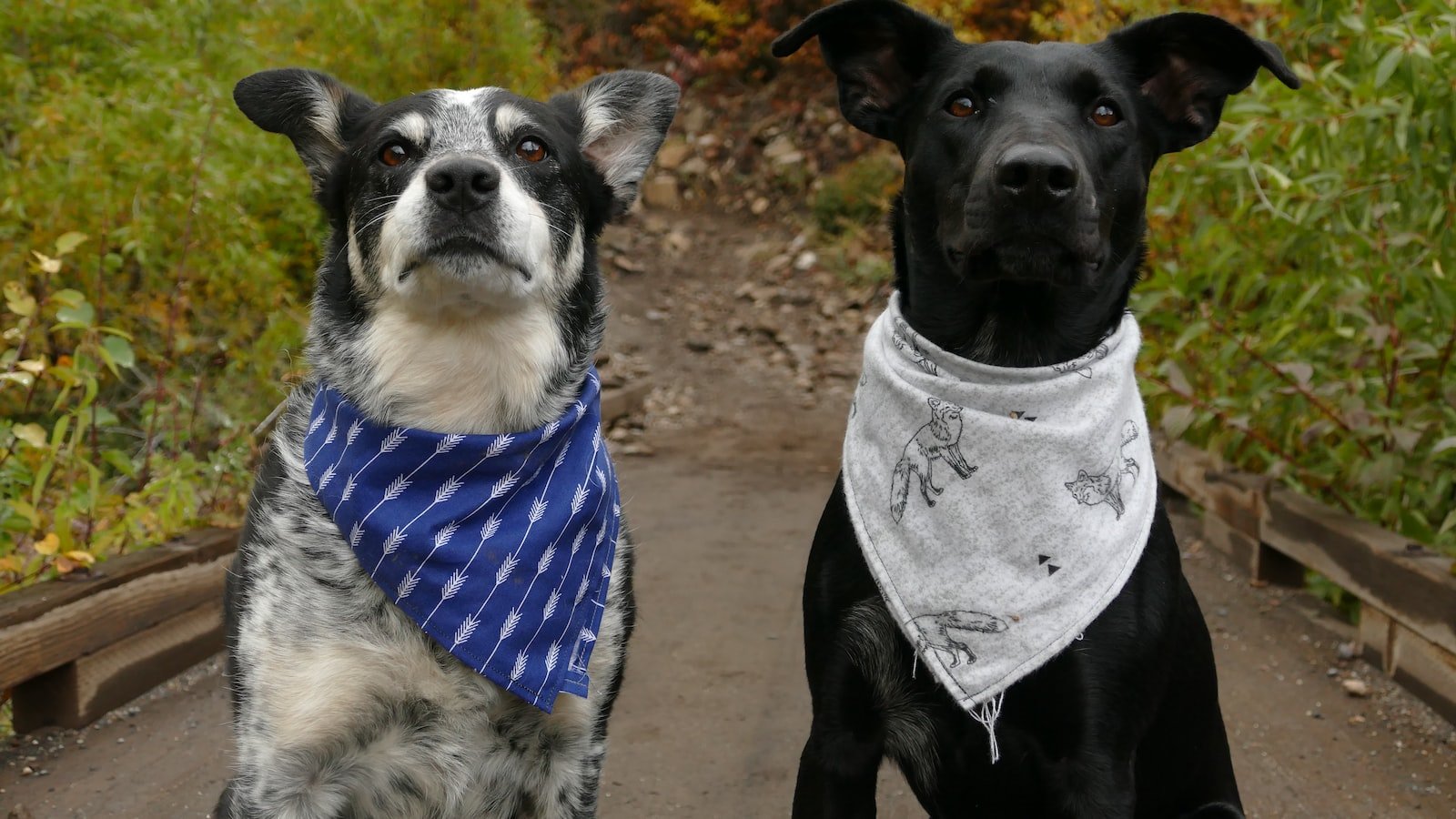In the enchanting world of dog training techniques, one particular command stands out for its elegance and versatility: the “Turn” command. This simple yet powerful instruction not only teaches our canine companions to gracefully change direction on command, but also enhances their cognitive abilities and strengthens the bond between human and dog. Whether it’s gracefully navigating through an agility course or effortlessly pivoting during a daily walk, mastering the “Turn” command opens a gateway to a whole new level of communication and cooperation with our furry friends. Join us as we delve into the intricacies of this enchanting technique, and discover how it can revolutionize your dog training journey.
Table of Contents
- Mastering the ”Turn” Command: Unleash the Power of Direction Changes in Dog Training
- Understanding The Importance of the “Turn” Command in Dog Training
- Proven Techniques for Teaching Dogs the “Turn” Command
- Common Mistakes to Avoid When Teaching the “Turn” Command
- Taking the “Turn” Command to the Next Level: Advanced Tips and Tricks
- Q&A
- Future Outlook

Mastering the “Turn” Command: Unleash the Power of Direction Changes in Dog Training
The “Turn” command is a fundamental tool that every dog owner should master when it comes to obedience training. This simple yet powerful command allows you to unleash the potential of direction changes, making your dog more attentive and responsive to your cues.
When teaching your dog the “Turn” command, it is essential to start with the basics. Begin in a quiet and distraction-free environment, using treats or toys as positive reinforcements. Here are some steps to follow:
- First, get your dog’s attention by calling their name and showing them the treat or toy.
- Hold the reward in your hand at your dog’s nose level, slightly off to the side.
- Slowly move your hand in a circular motion away from your dog’s nose, leading them to turn their head and body in the desired direction.
- As your dog completes the turn, reward them with praise and the treat or toy.
Consistency is vital during the training process. Practice the ”Turn” command with your dog in various environments and gradually increase distractions to ensure they can follow your command no matter the situation. Remember to be patient and provide positive reinforcement to motivate your furry friend.

Understanding The Importance of the “Turn” Command in Dog Training
When it comes to dog training, there are numerous commands that can shape a well-behaved and obedient companion. However, one particular command often overlooked but of utmost importance is the “Turn” command. This seemingly simple action can have a profound impact on a dog’s behavior and training.
Understanding the significance of the ”Turn” command can enhance the bond between an owner and their furry friend. Here are a few reasons why:
- Promotes focus and attention: Teaching a dog to respond to the “Turn” command requires them to pay attention to their owner’s cues. This helps in establishing clear communication and strengthening the dog’s ability to focus and comply with other commands.
- Encourages mental stimulation: The “Turn” command aids in providing mental stimulation to your dog. By incorporating it into training sessions, you challenge their cognitive abilities, promoting mental agility and problem-solving skills.
- Increases control and safety: Mastering the “Turn” command grants owners greater control over their dogs in various situations. Whether it’s redirecting their attention from distractions or ensuring their safety in potentially dangerous environments, this command becomes a valuable tool in maintaining control and avoiding potential risks.
For those embarking on a dog training journey, it’s essential to recognize the value of the “Turn” command. By incorporating it into training sessions regularly, pet owners can witness positive changes in their dog’s behavior, attentiveness, and overall obedience.

Proven Techniques for Teaching Dogs the “Turn” Command
Teaching your dog new commands can be a fun and rewarding experience. One valuable command to add to your repertoire is the “turn” command, which allows you to redirect your dog’s attention and change their direction quickly. Here are some proven techniques to help you teach your furry friend this useful command:
- Start with positive reinforcement: Use treats and verbal praise to reward your dog whenever they turn in the desired direction. This positive reinforcement will help them associate the action with something pleasurable and encourage them to repeat it.
- Use hand signals: Dogs are highly responsive to visual cues, so incorporate clear hand signals to accompany the verbal command for turning. For example, you can extend your arm in the direction you want them to turn and make a circular motion with your finger. This will help them understand and respond to the command more effectively.
- Progress gradually: Start by teaching your dog to turn in place, using treats and hand signals. Once they grasp the concept, gradually introduce distractions and practice the command outdoors or in different environments. This will reinforce their understanding and ability to turn regardless of the circumstances.
Remember, patience and consistency are key when training your dog. Celebrate their progress and always end each training session on a positive note. With these proven techniques and a little dedication, your furry companion will soon master the “turn” command, making walks and activities together even more enjoyable!

Common Mistakes to Avoid When Teaching the ”Turn” Command
Teaching your dog commands can be an exciting and rewarding experience, but it’s important to steer clear of some common pitfalls when it comes to teaching the “Turn” command. By avoiding these mistakes, you’ll set yourself and your furry friend up for success.
1. Inconsistency: Consistency is key when it comes to training any command, and the “Turn” command is no exception. Deviating from your chosen hand signal or verbal cue can confuse your dog, leading to frustration on both ends. Make sure to establish clear and consistent signals right from the start and stick to them throughout the training process.
2. Rushing the progression: Rome wasn’t built in a day, and your dog won’t learn the “Turn” command in one training session. It’s essential to break down the training process into small steps and gradually increase the difficulty. Rushing the progression can leave your dog feeling overwhelmed and impede their learning progress. Take your time, be patient, and celebrate each small achievement along the way.
3. Lack of positive reinforcement: Dogs thrive on praise and rewards. Forgetting to reward your dog for correctly executing the “Turn” command can quickly discourage them and make the training process less enjoyable. Ensure you have plenty of yummy treats or favorite toys on hand to reward your pup for their successful turns. The more positive reinforcement they receive, the more motivated they’ll be to continue learning and perfecting the command.
Taking the “Turn” Command to the Next Level: Advanced Tips and Tricks
Advanced Tips and Tricks for the “Turn” Command
Navigating through life can sometimes feel like an endless series of turns, but fear not! In this section, we will help you master the art of the “Turn” command like never before. Buckle up and get ready to take your turning skills to the next level with these advanced tips and tricks.
1. Combine “Turn” with “Jump”: Want to teleport to a different section of the game map with a single command? Use the “Jump” command in conjunction with “Turn” to instantly transport yourself to a whole new location! This is particularly useful when you need to avoid obstacles or surprise your opponents.
2. Get Creative with Angles: The “Turn” command allows you to specify angles to rotate. But did you know you can also use decimals? Experiment with fractional angles such as 45.5° or even 36.25° to achieve more precise turns. This level of control can make all the difference in tight situations and give you a competitive edge.
3. Master the “Turn Back” Move: Sometimes, you just need a quick change of direction. Instead of executing multiple turn commands, simply use the “Turn Back” move. This nifty trick will instantly rotate you 180 degrees, leaving your opponents puzzled and giving you the upper hand.
By adopting these advanced techniques, you’ll become a “Turn” command virtuoso in no time. Remember, knowledge is power, so go forth and conquer the virtual world with your newfound skills. Happy turning!
Q&A
What is the “turn” command in dog training?
The “turn” command is a cue given to a dog to change its direction during training or while walking on a leash. It helps improve the dog’s obedience and responsiveness to commands.
How can I teach my dog the “turn” command?
To teach your dog the “turn” command, start by luring them with a treat in the desired direction, and use a verbal cue like “turn.” Reward them with the treat and praise when they correctly change direction. Gradually, decrease the use of the lure and rely only on the verbal cue.
What are the benefits of using the “turn” command?
Using the “turn” command in dog training helps to enhance communication and control between the owner and the dog. It also helps the dog develop better coordination and responsiveness when navigating different terrains or situations.
Can the “turn” command be used during off-leash activities?
Yes, the “turn” command can be effectively used during off-leash activities. Teaching your dog to respond to the “turn” command ensures that they can change direction and stay close to you even without a leash, improving their safety and freedom during outdoor adventures.
When should I use the “turn” command?
The “turn” command can be used in various situations, such as training sessions, walks, and during outdoor activities. It is especially useful when you need your dog to change direction quickly, avoid obstacles, or follow a specific path.
Is the “turn” command suitable for all dog breeds?
Yes, the “turn” command is suitable for all dog breeds. Regardless of their size or temperament, dogs can be trained to understand and respond to the “turn” command. However, the training techniques and duration may vary based on individual breed characteristics and personality traits.
What other commands can be combined with the “turn” command?
The “turn” command can be combined with other commands like “sit,” ”stay,” or “heel.” Incorporating these commands together helps to improve overall obedience and control of your dog. It also adds variety to their training and enhances their mental stimulation.
Future Outlook
As we conclude our journey through the realm of dog training, we have delved into the depths of one of the most essential commands – the “Turn.” 🐾
In this article, we illuminated the power of this seemingly simple command, unraveling its profound impact on direction changes during training sessions. Like a magician’s trick, the “Turn” command empowers dog owners to seamlessly guide their furry companions through a symphony of twists and turns, effortlessly syncing their movements with the utmost precision.
We unveiled the secrets behind this artful command, highlighting the crucial techniques and building blocks that will ensure your pup’s successful mastery. From the foundations of patience and consistency, to the finesse required in hand signals and voice cues, our journey has imparted upon you the key ingredients for harmonious direction changes.
But remember, dear reader, true mastery lies not only in the knowledge gained, but in its application. Take the concepts gleaned here and embark on your own training adventure. Together, you and your furry adventurer will forge an unbreakable bond steeped in trust and mutual understanding.
In this realm of dog training, there are no shortcuts or instant solutions. Like an artist crafting a masterpiece, we must embrace the process and embrace the journey. With each “Turn” command, we unlock untapped potential, fostering in our canine companions a profound sense of cooperation and connection.
So, seize the torch of knowledge you have been bestowed and embark on this training odyssey. Marvel as your beloved furry companion pirouettes with elegance and grace at your command. For here, in the realm of dog training, our efforts are rewarded not only with obedience but with a deep and unshakeable bond that transcends words.
As the final curtain falls on this chapter, may you carry the essence of the “Turn” command in your heart, whispering its infinite power to every dog owner who crosses your path. And may your four-legged adventurers always dance by your side, swaying through life’s twists and turns with unwavering devotion.
Until we meet again, fellow trainers and dog lovers, may the ’Turn’ command enrich your journey and forever unite you with the magnificent creatures who fill our lives with everlasting joy. 🐾✨
As an affiliate, my content may feature links to products I personally use and recommend. By taking action, like subscribing or making a purchase, you’ll be supporting my work and fueling my taco cravings at the same time. Win-win, right?
Want to read more? Check out our Affiliate Disclosure page.